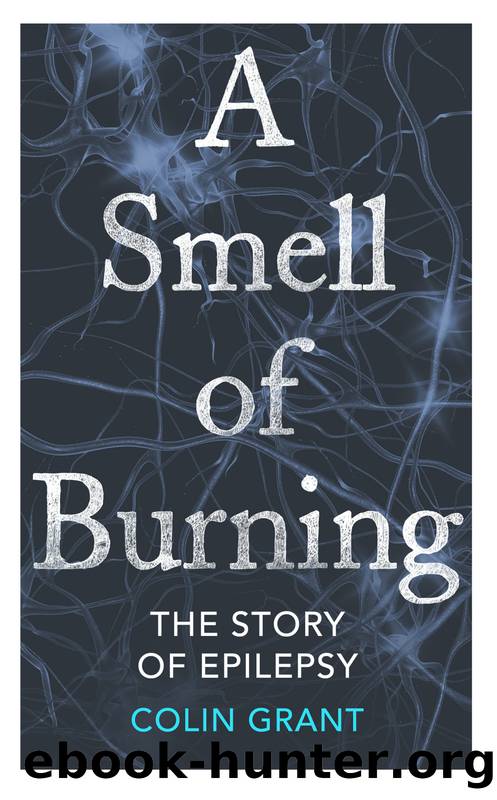A Smell of Burning by Colin Grant

Author:Colin Grant
Language: eng
Format: epub
Publisher: Random House
Readers would not have been surprised had Cushing concluded that Horsley was back home in time for lunch. But then others who worked with England’s premier neurosurgeon remarked that neither surgical precision nor courteousness was sacrificed for speed. A junior member of his team, Ernest Jones, wrote that ward visits with the professor ‘were accomplished in half the usual time but [Horsley] gave [each patient] the impression that he was his sole care in life and he would arrange their pillows with a tender deftness’.12
James B must have been sufficiently pleased with the plumpness of his pillows and Horsley’s bedside manner to accompany the surgeon that summer (along with two other patients he’d similarly operated on) to attend a huge conference of the BMA in the Royal Pavilion at Brighton, the former summer palace of George IV. More than a thousand medical men from around the globe, including Charcot, descended on the south coast of England, drawn especially by tales of Horsley’s success. In a pageant of pathology, James B and the other patients were put on public display; their case histories were presented in unsparing detail, and photographic illustrations of each stage of the operations were shown by lantern.
Horsley’s presentation electrified the audience. The event came to be celebrated as a landmark in medical history. A decade after John Eric Erichsen had counselled that surgeons were in danger of over-reaching themselves, the same Erichsen now sat amongst the audience in Brighton and marvelled at Horsley’s achievement as ‘the most remarkable application of pure science to practical surgery that has ever been brought to the notice of the profession, one that opens a new era, that of cerebral surgery’.13
Horsley took to the Brighton seafront to walk off the heady excitement, his ears still ringing from the adulation of his peers, and to ‘allow the boiling in his brain, aroused by the enthusiastic reception of his paper, to settle down’.14 Few would have begrudged him his moment of cheer, and the chance temporarily to step out of character. After all, a doctor’s register of emotions is mostly calibrated so that he remains sanguine, especially when dealing with patients when things go wrong. For, if there is no pity in medicine, much of the landscape is pitiful. And as Horsley was to discover, if he didn’t already know, each surgeon carries a mental ledger that includes significant failures marked up alongside the triumphs.
Neurosurgery was still in its infancy as the nineteenth century crossed into the twentieth. Only a handful of surgeons were willing or able to conduct such delicate and complicated operations on the brain, and this was to create a dilemma for Horsley. A few years later, when attending a concert at the Royal Albert Hall, Horsley’s adolescent son, Siward, collapsed and convulsed. A diagnosis of epilepsy was made. There were further fits on the following days. The records do not reveal the extent of his epilepsy or the violence of the fits but surgery was advised; and it fell to Horsley himself to undertake the onerous operation on his son.
Download
This site does not store any files on its server. We only index and link to content provided by other sites. Please contact the content providers to delete copyright contents if any and email us, we'll remove relevant links or contents immediately.
When Breath Becomes Air by Paul Kalanithi(7262)
Why We Sleep: Unlocking the Power of Sleep and Dreams by Matthew Walker(5640)
Paper Towns by Green John(4169)
The Immortal Life of Henrietta Lacks by Rebecca Skloot(3826)
The Sports Rules Book by Human Kinetics(3587)
Dynamic Alignment Through Imagery by Eric Franklin(3488)
ACSM's Complete Guide to Fitness & Health by ACSM(3467)
Kaplan MCAT Organic Chemistry Review: Created for MCAT 2015 (Kaplan Test Prep) by Kaplan(3422)
Introduction to Kinesiology by Shirl J. Hoffman(3299)
Livewired by David Eagleman(3121)
The River of Consciousness by Oliver Sacks(2992)
Alchemy and Alchemists by C. J. S. Thompson(2911)
The Death of the Heart by Elizabeth Bowen(2901)
Descartes' Error by Antonio Damasio(2731)
Bad Pharma by Ben Goldacre(2728)
Kaplan MCAT Behavioral Sciences Review: Created for MCAT 2015 (Kaplan Test Prep) by Kaplan(2491)
The Gene: An Intimate History by Siddhartha Mukherjee(2491)
The Fate of Rome: Climate, Disease, and the End of an Empire (The Princeton History of the Ancient World) by Kyle Harper(2435)
The Emperor of All Maladies: A Biography of Cancer by Siddhartha Mukherjee(2430)
